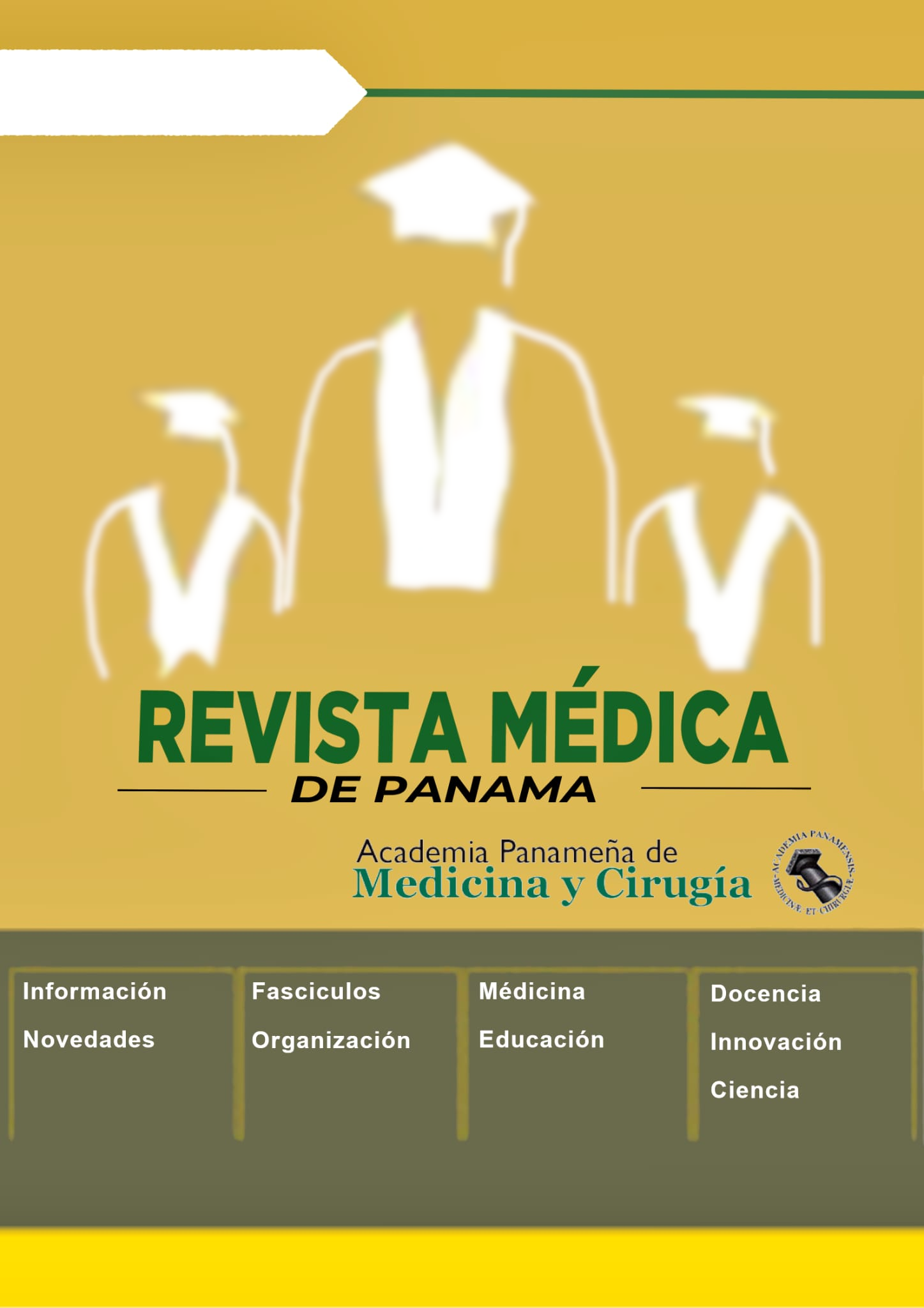Melanoma Cutáneo Etapa clínica IIIB-D: análisis retrospectivo de pacientes tratados en el Instituto Oncológico Nacional de Panamá

Autores/as
DOI:
https://doi.org/10.37980/im.journal.rmdp.20242402Palabras clave:
Melanoma cutaneo, supervivencia, recurrencia, linfadenectomía, tratamiento adyuvanteResumen
Antecedentes y objetivos: El melanoma cutáneo es una enfermedad agresiva. Aproximadamente el 10% de los casos son diagnosticados con enfermedad regional, siendo el manejo estándar, la resección del primario con linfadenectomía regional con inmunoterapia adyuvante o neoadyuvante. El objetivo de este estudio es reportar los resultados oncológicos en este grupo de pacientes y establecer factores asociados a mayor recurrencia y mortalidad. Materiales y métodos: Descriptivo, no experimental, transversal y retrospectivo. Se analizaron 44 pacientes con diagnóstico Melanoma cutáneo ECIIIB-D tratados en el Instituto Oncológico Nacional durante el período de enero 2017 a diciembre 2023. Resultados: 44 pacientes fueron tratados. El 49.5% con Breslow > 4 mm y 68.2% con ulceración, el 75% presentaban ≥2 ganglios positivos. La mediana de supervivencia global fue 30 meses y la mediana de supervivencia libre de recurrencia 12 meses. Los pacientes con recurrencia tuvieron peor mediana de supervivencia global (25 meses) que los que no tuvieron recurrencia (no alcanzada) (p 0.036). Los factores de riesgo asociados a mayor recurrencia fueron Breslow 2.1-4 mm (HR 4.88, IC 1.0-23.01, p 0.046) y ≥4 ganglios positivos (HR 4.2, IC 1.17-15.2, p 0.027). La ausencia de invasión linfovascular fue factor protector de muerte (HR 0.21, IC 0.06-0.67, p 0.008). Conclusiones: en el Instituto Oncológico Nacional, la supervivencia libre de recurrencia es ligeramente más baja que en la literatura mundial, los principales factores asociados a recurrencia fueron Breslow > 2 mm y ≥4 o más ganglios positivos. Esto crea la pregunta de si agregar inmunoterapia podría mejorar estos resultados.
Publicado
Número
Sección
Licencia
Derechos de autor 2024 Infomedic Intl.Derechos autoriales y de reproducibilidad. La Revista Médica de Panama es un ente académico, sin fines de lucro, que forma parte de la Academia Panameña de Medicina y Cirugía. Sus publicaciones son de tipo acceso gratuito de su contenido para uso individual y académico, sin restricción. Los derechos autoriales de cada artículo son retenidos por sus autores. Al Publicar en la Revista, el autor otorga Licencia permanente, exclusiva, e irrevocable a la Sociedad para la edición del manuscrito, y otorga a la empresa editorial, Infomedic International Licencia de uso de distribución, indexación y comercial exclusiva, permanente e irrevocable de su contenido y para la generación de productos y servicios derivados del mismo. En caso que el autor obtenga la licencia CC BY, el artículo y sus derivados son de libre acceso y distribución.






